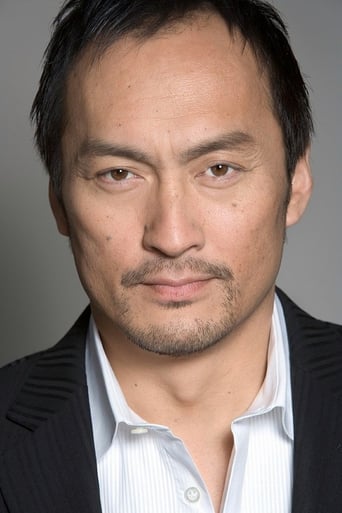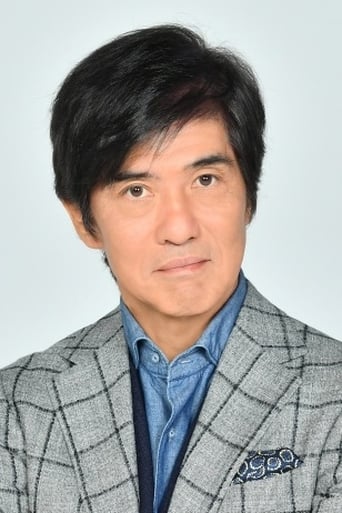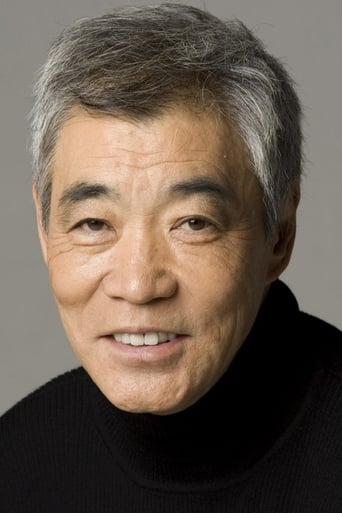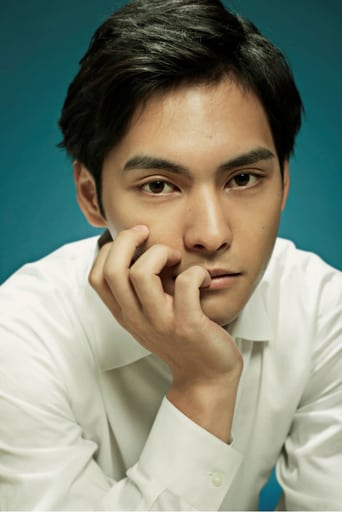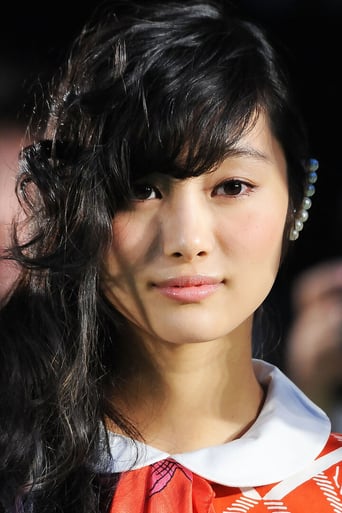VividSimon
Simply Perfect
StyleSk8r
At first rather annoying in its heavy emphasis on reenactments, this movie ultimately proves fascinating, simply because the complicated, highly dramatic tale it tells still almost defies belief.
Tayloriona
Although I seem to have had higher expectations than I thought, the movie is super entertaining.
mr_scroggins
I loved the original Clint Eastwood version and this is an excellent retelling. Few people know how much the Japanese frontier of Hokkaido parallels the American west and this story really takes you inside of that. It is a very different story due to cultural and factual differences, but the core tale rings through. I saw this when it first came out and I re-watched it just the other night. If you like action and drama you owe it to yourself to watch this. Every aspect of this movie including story, acting, directing, and editing is near perfect. This is a true hidden gem.
Leofwine_draca
When I heard that Japanese were making a period samurai movie based on the modern-day Eastwood western classic UNFORGIVEN, I was in two minds. I love samurai flicks (and also leading actor Ken Watanabe), but the Eastwood film was already pretty much perfect for a lot of fans. How could the Japanese hope to better it? The answer is that they haven't. This new UNFORGIVEN is the inferior film in every respect, with a boring villain and a lack of talented actors and characterisation that made the original such a great movie. The Japanese UNFORGIVEN feels slow and stately and is certainly well shot throughout, but aside from the exciting climax, it has no real voice or look of its own.For the most part, this is a shot-for-shot remake and I have no interest in shot-for-shot remakes. Thematic remakes are fine; remakes that take key material and give their own slant, like Carpenter's THE THING or Aja's THE HILLS HAVE EYES, great. But all the while I was watching this film, I was wishing I was watching the superb original instead. Watanabe does his best and while it's nice to see the Japanese remaking an American film for a change (as so many times it's been the other way around), UNFORGIVEN is a bit pointless.
ilBuono
When a movie is as brilliant as Eastwood's Unforgiven, it's very hard if not impossible to watch its remake with a fresh eye. I tried, but could not succeed. I kept wishing I was watching the original. Not to say it was a bad film, not at all, but there are some major flaws in this movie. First of all, the characters and actors were nowhere as charismatic as in the original. Not that they were bad, but imho they lack the emotional depth and nuance that their predecessors had. While Gene Hackman's role seemed beautifully fleshed out, his Japanese counterpart is merely a psychopath.The film imitates parts from the original at places were they could have strayed off a bit, and vice versa. Sometimes it felt I was watching a western, just with Japanese actors, while I expected it to be a samourai movie. There are scenes from Unforgiven 1 and 2 with matching color palettes, which I think is a shame. Why not go for a totally different approach? Accentuate the differences, not the similarities. But there are scenes in the original that had a lot of punch (eg the final shootout scene), which have been given a different approach and therefore fail.Where it succeeds is the beautiful cinematography, and the conclusion of Japanese Will Munny's character. I also like the symbolic use of the elements like rain and snow.But as said, I'm extremely prejudiced (Eastwood's Unforgiven is one of my favourite movies) and perhaps the viewer who is not familiar with the original will love this one just as well.
maurice yacowar
Sang-il Lee's Unforgiven is at least as good as Clint Eastwood's 1992 classic. With the same general characters and plot, the remake adds some stunning visuals. The archetypal white horse dead in the snow is as powerful an image of nihilism as we'll ever see. That's rhymed later by the white bottle of horse-manure hooch that the reformed and now relapsed killer Jubei drains and tosses to the snow and his old war-mate (the Morgan Freeman sub) tortured, killed then left in the frost. The Japanese setting — 1880s Hakkaido — makes for some crucial differences. The violence is ratcheted up significantly both because of the gore endemic to Samurai swordplay and from the cataclysmic destruction that the nation's atomic bombings have stamped on the cultural psyche. The film also adds the bitter tribal tension between the privileged Wa and the persecuted Ainu. Jubei has a scene with his Ainu father-in-law who regrets that his grandchildren aren't learning the language. The remake also makes the swaggering young pretend-killer an Ainu. His itch, cockiness and teary admission of humble origins recall the Mifune character in The Seven Samurai. Where Eastwood closed on the possibility that his Will Munny took his children to a merchant's life in San Francisco, here we get no hint of Jubei's future. Instead he sends the Ainu kid and the scarred whore to his farm, with the reward money. The suggestion is that with his reversion to his old killer self he no longer deserves to serve his wife's memory and to father his children. With the reward and the children he gives the young killer and the woman their chance for redemption. She removes herself from the prostitute's shame and hunger for vengeance, he from the wrong-headed attraction to macho killing.This is a harder moral position than the original. Eastwood's film brilliantly questioned his own persona's career of film violence. The Japanese context provides a parallel twist. As it dramatizes the inescapable cycle of violence the film could be read as an argument against Japan's re-militarizing. For more see www.yacowar.blogspot.com.

